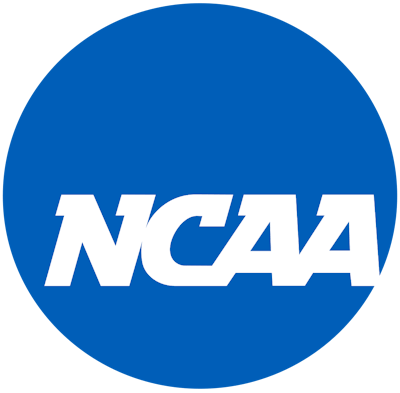
Former UNLV women's track and field head coach Dorian Scott violated ethical conduct rules when he knowingly provided impermissible benefits to two student-athletes and instructed them to lie about those benefits, according to an agreement released by the Division I Committee on Infractions. The coach also impermissibly arranged for team members to be provided a supplement. Due to his involvement in the violations, Scott violated head coach responsibility rules and again violated ethical conduct rules when he failed to cooperate with an NCAA investigation.
Additional violations occurred when Scott permitted individuals to impermissibly engage in on- and off-track coaching activities. Scott impermissibly arranged for one of those individuals to receive compensation despite his designation as a volunteer coach.
The school and enforcement staff agreed that Scott violated ethical conduct rules in July 2022 when he knowingly provided a student-athlete with international round-trip airfare so she could visit family members. He then instructed the student-athlete to lie about the airfare and falsify compliance documents, stating that the travel was for outside competition although she had an injury that prevented her from competing at that time. The value of the airfare was $1,463.
When the student-athlete returned to campus in August, Scott instructed a track and field volunteer coach to provide a $2,000 loan to the student-athlete and her roommate — another member of the track and field team — to secure housing. Scott also provided the student-athlete with $500 for groceries. Approximately one month later, the student-athletes repaid the volunteer coach for the housing loan.
In September 2022, Scott deviated from the school's normal process for requesting and purchasing supplements when he directed an assistant coach to order the amino acid L-glutamine and distribute the supplement to members of the women's track and field team. UNLV's nutritionist notified the coach the following day that it was impermissible for the school to provide the supplement, but Scott made no effort to recover the supplement from the student-athletes who had received it.
Additionally, Scott arranged for an individual designated as a volunteer coach to receive compensation and regularly provide technical and tactical instruction, leading the program to exceed the number of countable coaches. Further, on about 12 occasions, Scott permitted a track and field consultant to lead workouts and provide technical and tactical skills instruction during practices, leading the program to again exceed the number of countable coaches.
Due to his direct involvement in the violations — and his actions to involve others in some of those violations — Scott violated head coach responsibility rules.
Finally, Scott violated ethical conduct rules when he refused to participate in an interview or provide information during the investigation despite multiple requests by the school and enforcement staff.
The school and enforcement staff agreed that UNLV has robust compliance monitoring systems that exceed industry standards to deter and detect violations and that UNLV modeled exemplary cooperation by embracing its responsibility and exceeding expectations in a collaborative investigation.
This case was processed through the negotiated resolution process. The process was used instead of a formal hearing or summary disposition because the university and enforcement staff agreed on the violations and the penalties. The Division I Committee on Infractions reviewed the case to determine whether the resolution was in the best interests of the Association and whether the agreed-upon penalties were reasonable. Negotiated resolutions may not be appealed and do not set case precedent for other infractions cases.
The university and enforcement staff used ranges identified by the Division I membership-approved infractions penalty guidelines to agree upon Level I-mitigated penalties for the university and Level I-aggravated penalties for Scott. The decision contains the full list of penalties as approved by the Committee on Infractions, including:
- Two years of probation.
- A fine of $5,000 plus 2% of the women's track and field budget and an additional fine associated with the ineligible competition.
- A 10-year show-cause order for Scott. During the show-cause order, any member school that employs him shall restrict Scott from any athletically related position. If he becomes employed in the first year following the show-cause order, he shall be suspended for 100% of the track and field regular season.
- A vacation of all records in which the student-athlete competed while ineligible. The university must provide a written report containing the contests impacted to the NCAA media coordination and statistics staff within 14 days of the public release of the decision.
- A 12-day suspension for Scott from practice during the 2021-22 academic year (self-imposed by the school).
- A reduction in women's track and field countable coaches by one at 12 regular practices during the 2023-24 or 2024-25 academic years.
Members of the Committee on Infractions are drawn from the NCAA membership and members of the public. The members of the panel who reviewed this case are Jeremy Jordan, dean of the David B. Falk College of Sport and Human Dynamics at Syracuse and chief hearing officer for the panel; Jason Leonard, executive director of athletics compliance at Oklahoma; and Stephen Madva, attorney in private practice.































